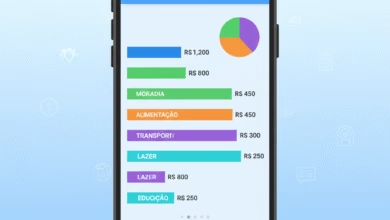Which brokers offer the best customer service?
Discover the best brokers with customer service

In the age of $0 commissions and slick trading apps, it’s easy to believe that all brokers are created equal. You tap a button, you buy a stock. What more is there?
But then, it happens.
You get a cryptic tax document you don’t understand. You need to roll over an old 401(k), and the instructions are baffling. Or worse, you’re locked out of your account during a massive market crash, watching your money evaporate while you’re stuck in an endless loop with an automated chatbot.
This is the moment when you discover the real value of a broker. It’s not the commission (which is zero) or the app’s color scheme. It’s customer service.
When your financial future is on the line, the ability to get a smart, licensed, and human being on the phone is not just a luxury—it’s a critical safety feature. But the truth is, most “free” trading apps have cut this feature to the bone to pay for their $0 commission model.
So, who can you actually count on when you need help? We’ve dived deep into the support structures of the top U.S. brokers to find out.
What “Best Customer Service” Means for an Investor (It’s Not Just a Call Center)

“Good service” is subjective. A 25-year-old day trader has very different needs than a 65-year-old retiree. Before we name the winners, we need to define the key components of high-quality support.
- Accessibility (The “When”): Can you reach them when you need to? Is support 24/7/365, or does it shut down at 5 PM on a Friday, right when you have a problem?
- The Human Factor (The “Who”): Are you funneled into an endless “press 1 for…” phone tree and a useless chatbot designed to prevent you from talking to a person? Or can you get a human on the line in under two minutes?
- Expertise (The “How”): Is the person you reach a general call center employee reading from a script? Or are they a FINRA-licensed professional (holding a Series 7 or 63 license) who can give you actual, knowledgeable answers about your investments?
- Channel Variety (The “Where”): Does the broker meet you where you are? Do they offer phone, secure online chat, email, and—the gold standard—physical, in-person branches?
- Proactive Support (The “Why”): Does the broker only react to problems? Or do they offer free access to financial planning tools, one-on-one consultations, and educational resources to help you avoid problems in the first place?
When you measure brokers by these five metrics, the winners become abundantly clear.
The Titans of Support: Why Full-Service Brokers Still Dominate
For investors who value peace of mind, the “big three” full-service, legacy brokers are in a league of their own. They built their reputations on service long before $0 commissions existed, and their infrastructure reflects that.
1. Fidelity Investments: The Gold Standard for Accessibility and Expertise

Fidelity has successfully built a “best of both worlds” platform. It boasts world-class technology (its app is fast and modern) while maintaining its massive, human-powered support network.
- 24/7/365 Phone Support: This is the headline. At 3 AM on a Sunday or in the middle of a holiday, you can call and get a human on the line.
- The Human Factor: Fidelity’s wait times are consistently among the lowest in the industry. More importantly, the people you speak with are almost always FINRA-licensed Fidelity employees based in the U.S. They aren’t just call center reps; they are qualified professionals who can discuss complex trading and retirement topics.
- Channel Variety: This is where Fidelity pulls away. They offer:
- Phone Support: 24/7/365.
- Live Chat: A robust, secure chat with licensed pros (not just a bot).
- Virtual Assistant: A powerful AI for simple questions.
- Physical Branches: A network of over 200 “Investor Centers” across the country where you can walk in and talk to a human, for free.
The Experience: Calling Fidelity feels like calling a company that wants to talk to you. The phone tree is logical and designed to get you to the right type of expert (e.g., retirement specialist, active trader specialist) quickly. For the average retirement or long-term investor, Fidelity is hands-down the top choice for customer service.
2. Charles Schwab: Best-in-Class for High-Touch, Personalized Advice

Schwab has always had a sterling reputation for service, and after its complete integration of TD Ameritrade, its scale is truly staggering. Schwab excels at building personal relationships.
- 24/7 Phone & Chat: Like Fidelity, Schwab offers 24/7 access to qualified, licensed professionals.
- The Branch Network: Schwab has the largest branch network in the game, with over 400 locations. This is a massive advantage for investors who want to sit down with someone face-to-face.
- The “High-Touch” Model: Schwab’s real differentiator is its Financial Consultant model. While all clients have access to the main support line, clients with larger accounts (often starting around $250k) are typically assigned a dedicated Financial Consultant. This gives you a named person and a direct line for complex financial planning, portfolio reviews, and personalized advice.
- Satisfaction Guarantee: Schwab is so confident in its service that it offers a “Satisfaction Guarantee,” promising to refund any eligible fee or commission if a client isn’t happy.
The Experience: While Fidelity feels like an efficient, high-tech support machine, Schwab feels more like a traditional wealth manager. They are exceptionally good at “hand-holding” (in the best way possible) and are a fantastic choice for investors who are building significant wealth and want a long-term, personal relationship with their broker.
The Contenders: Strong Support for Different Investor Types
Beyond the top two, other major brokers offer compelling service models that cater to specific needs.
3. E*TRADE (from Morgan Stanley)

E*TRADE was one of the original online brokers and has always been known for its powerful trading platform. Now that it’s fully owned by Morgan Stanley, its service capabilities have been integrated with a global wealth management powerhouse.
- 24/7 Support: E*TRADE offers 24/7/365 phone and chat support for general needs, with specialized desks for active traders, options, and futures.
- Digital-First: Their online chat and email support systems are very strong, catering to an audience that may prefer not to call.
- The Morgan Stanley Connection: The biggest change is the integration with Morgan Stanley. E*TRADE clients now have access to a much deeper well of research, insights, and, for high-net-worth clients, a path to Morgan Stanley’s full-service financial advisors.
- Physical Branches: They have a small network of about 60 branches, a fraction of Schwab’s or Fidelity’s, but still more than the app-only brokers.
The Experience: E*TRADE is a strong contender, especially for active traders who need 24/7 access to knowledgeable trade-desk specialists. The service feels professional and “all-business.”
4. Vanguard: Legendary for Low Costs… But What About Service?

This is a nuanced one. Vanguard is the father of low-cost, passive investing. Its entire company structure is built to serve its investors (who are its owners). However, their service model is… different.
- The “Catch”: Vanguard’s primary mission is to keep costs at rock bottom. The main way to do that is to reduce overhead. And the biggest overhead is a massive, 24/7 customer support staff.
- The Reality: Vanguard’s phone support is not 24/7. They operate on standard business hours (8 AM to 8 PM ET, Monday-Friday). During peak times (like tax season or market crashes), wait times can be famously long.
- The “Flagship” Exception: This all changes if you have a lot of money with them. Vanguard provides excellent, high-touch, personalized service to its high-net-worth clients (typically $1 million+) through its “Flagship Select” services.
The Experience: For a standard investor, service at Vanguard can be frustrating. They are not built for quick, high-touch interactions. They are built for patient, long-term, buy-and-hold investors who rarely need to call. If you are a high-net-worth client, the service becomes excellent.
The “You’re On Your Own” Model: The Truth About Fintech and App-Only Brokers
This brings us to the new generation of fintech apps: Robinhood, Webull, SoFi, and others. How do they offer $0 commissions and slick apps?
By cutting service.
This isn’t an attack; it’s a statement of their business model. They have largely done away with the three most expensive parts of customer support:
- Large, 24/7, U.S.-based call centers.
- Highly-paid, FINRA-licensed professionals.
- Physical branch networks.
The “App-Only” Experience:
With most of these brokers, it is extremely difficult to find a phone number. You are pushed, by design, into:
- Chatbots: Automated systems that try to answer your question with a help article.
- Email/Ticket Systems: You send a message and may wait 24-72 hours for a response.
- Limited Phone Support: Some (like Robinhood) have introduced phone support, but it’s often not 24/7 and you may have to “request” a callback through the app rather than dialing a direct number.
This trade-off is perfectly fine if you are a young investor with $500 and you only have simple questions. But it is a catastrophic failure point if you have a $500,000 retirement account and you’ve been a victim of identity theft. You don’t want to send an email; you need to talk to a human right now.
How to “Test Drive” a Broker’s Customer Service Before You Commit
You wouldn’t buy a car without test-driving it. Why would you move your life savings to a broker without testing their service? Here are four simple tests you can run before you open an account.
- The “Find the Number” Test: Go to the broker’s homepage. How many clicks does it take to find a customer support phone number? Is it prominently displayed at the top or bottom of every page (like Fidelity/Schwab)? Or is it buried deep in a “Contact Us” or “Help” labyrinth? This tells you everything about their service philosophy.
- The “Call and Ask” Test: Call the “prospective client” number. Ask them a slightly complex, non-account-holder question.
- Good question: “Hi, I’m thinking of rolling over a 401(k). Can you explain the difference between a direct and indirect rollover?”
- Another good one: “What are the expense ratios on your S&P 500 and Total Stock Market index funds?”
- The “Wait Time” Test: How long did it take you to get a human? Was it under 2 minutes? Was it 15 minutes? Did they try to make you hang up?
- The “Chat Test”: Open their live chat window. Is it immediately a human, or is it a bot? If it’s a bot, type “agent” or “talk to a human.” How hard do you have to fight to get past the AI?
Running these 10-minute tests will give you a crystal-clear picture of what life will be like as a client.
Our Verdict: The Best Brokerage Customer Service for Most Investors

So, who comes out on top?
- Best Overall: Fidelity Investments
- For the vast majority of investors, from beginners to multi-millionaires, Fidelity has the best all-around service. The combination of 24/7/365 access, low wait times, licensed-professional expertise, and a strong branch network is an unbeatable package.
- Best for Personalized, High-Touch Service: Charles Schwab
- If your priority is building a personal, long-term relationship with an advisor and you value a massive in-person branch network, Schwab is a fantastic choice. Their service is a cornerstone of their brand.
- Best for Active Traders: E*TRADE
- With its 24/7 support and specialized trading desks, E*TRADE provides the robust, always-on support that active and options traders require.
Ultimately, the rise of $0 commissions has forced investors to look closer at what else a broker offers. While a slick app is nice, it’s the invisible infrastructure of human-powered, expert support that provides true, long-term value and peace of mind.





